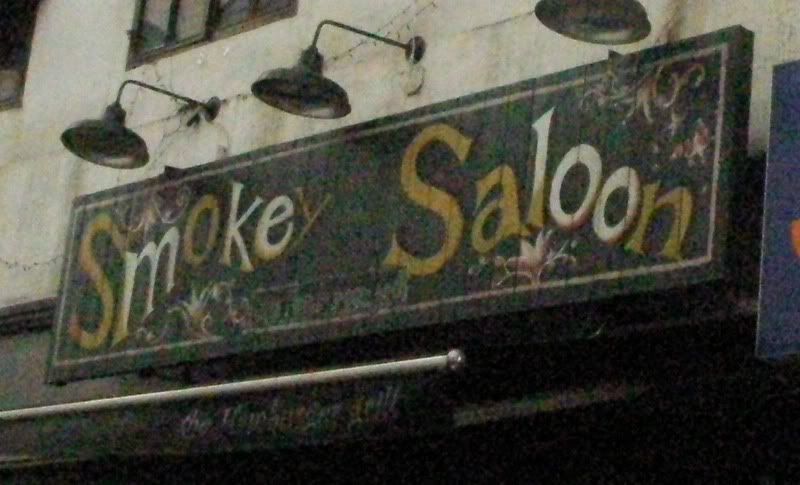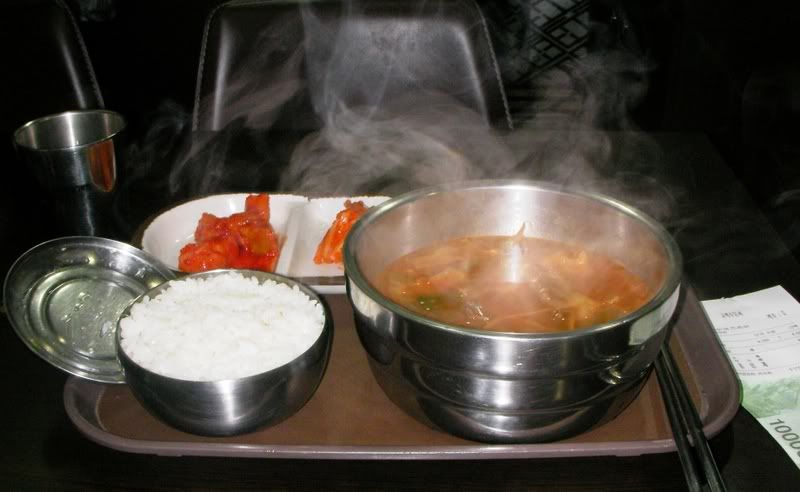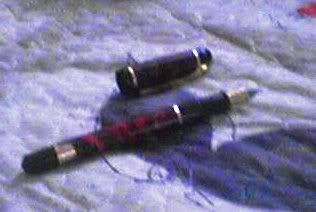 This happens with too much frequency in Seoul, but this time it happened in a place of business after I went there to indulge myself.
This happens with too much frequency in Seoul, but this time it happened in a place of business after I went there to indulge myself.
Today I finally got my new fillings put in today. Ouch!!! As a treat, I figured I'd go to treat myself to a high calorie meal. There is a place called the Smokey Saloon in the Itaewon district of Seoul that has great burgers. It's not even close to a saloon, but just a small and dark restaurant with a few seats and a great selection of gourmet style burgers. I actually don't eat burgers that much, but this place has a great one with avocado or guacamole. I can't recall which, I just recall it was great.
I get there and I notice it has the same facade as a place that just opened down the hill from where I live. Then I realize that new place is a new location of this restaurant. Okay, cool...great burgers are even closer now. I say something to the waiter in English. He looks at me, grumbles, pushes the menu my way and walks away. As he's walking away I can see him talking to the cook who is a Filipina. I ask her point blank "did he just walk away from me?" She explained that he didn't speak English and, I guess, that was supposed to be an excuse for acting like a jerk. I explained that even if he doesn't speak English it was extremely rude to stomp off like that and that I would respond in kind by walking out. This happens with a fair amount of frequency, but usually the person isn't rude. Even when they're not rude I find it presumptuous and irritating, but they're probably right in their assumption most of the time and I have to admit that much.
What's funny is this. I speak enough Korean to place a food order in Korean. I can even order over the phone for Korean delivery. I put that level of language skill at survival level as you've got to figure out what to say when you want to eat. However, this guy, being a dimwit simply assumed I couldn't speak his language at all and chose to be rude. Now I could have made a big deal about it, switched languages, made a scene and called him out on it but, I just didn't care too. I figured walking out and never going back would be the best option. What makes it funny is, like I said, this is in Itaewon. Itaewon is the foreign district of Seoul. Most people can speak at least a little English and, if they don't, they're, at least, nice about it.
So be careful if you go to the Smokey Saloon location in Itaewon early on a Tuesday evening. You might end up getting snubbed because the help simply assumes you don't speak Korean.
 Now it's dinnertime. Instead I went to Ho Lee Chow where they're always nice to me and which is my favorite Chinese restaurant in Seoul.
Now it's dinnertime. Instead I went to Ho Lee Chow where they're always nice to me and which is my favorite Chinese restaurant in Seoul.
Read More...
Summary only...
Sphere: Related Content





















